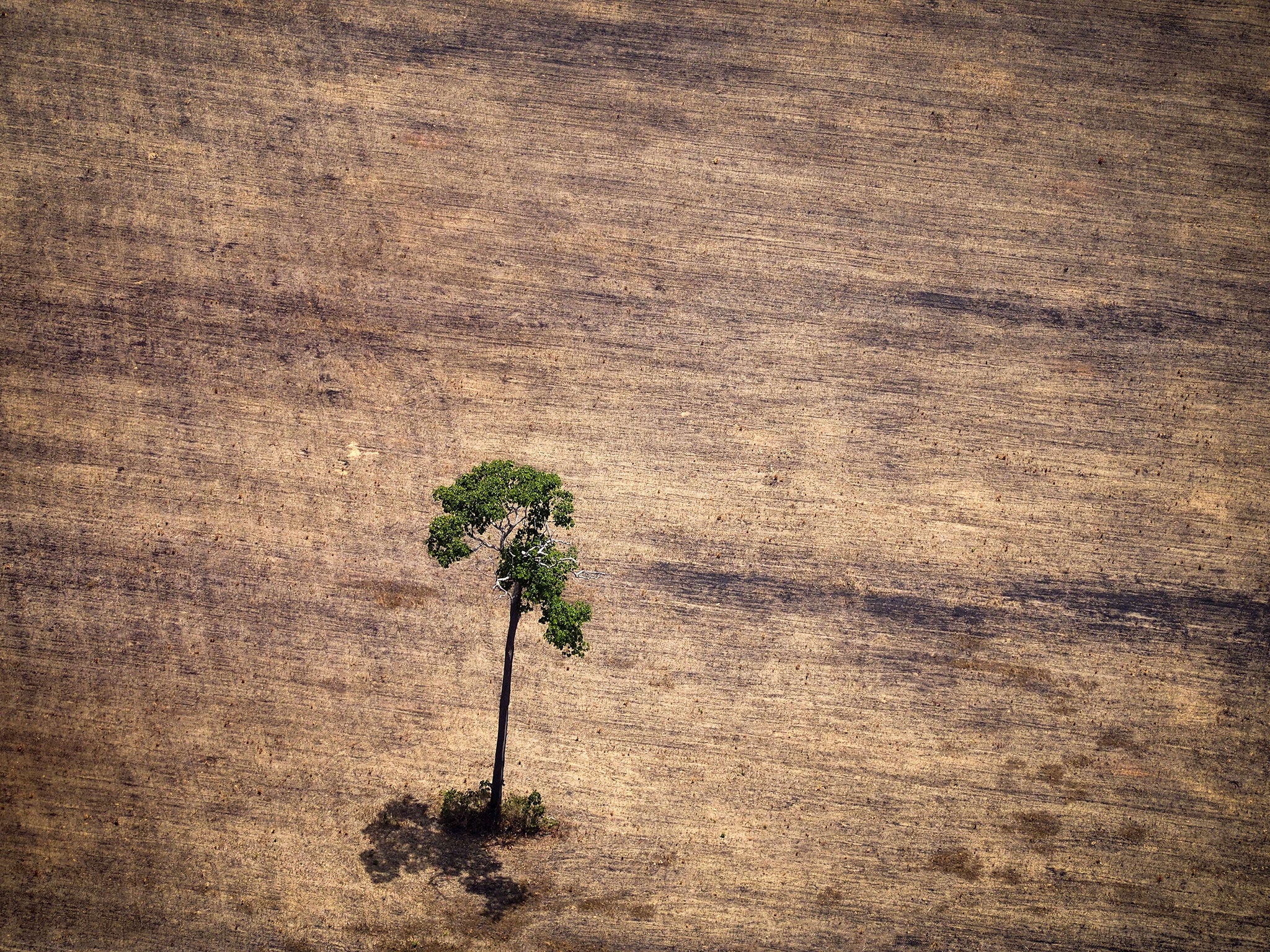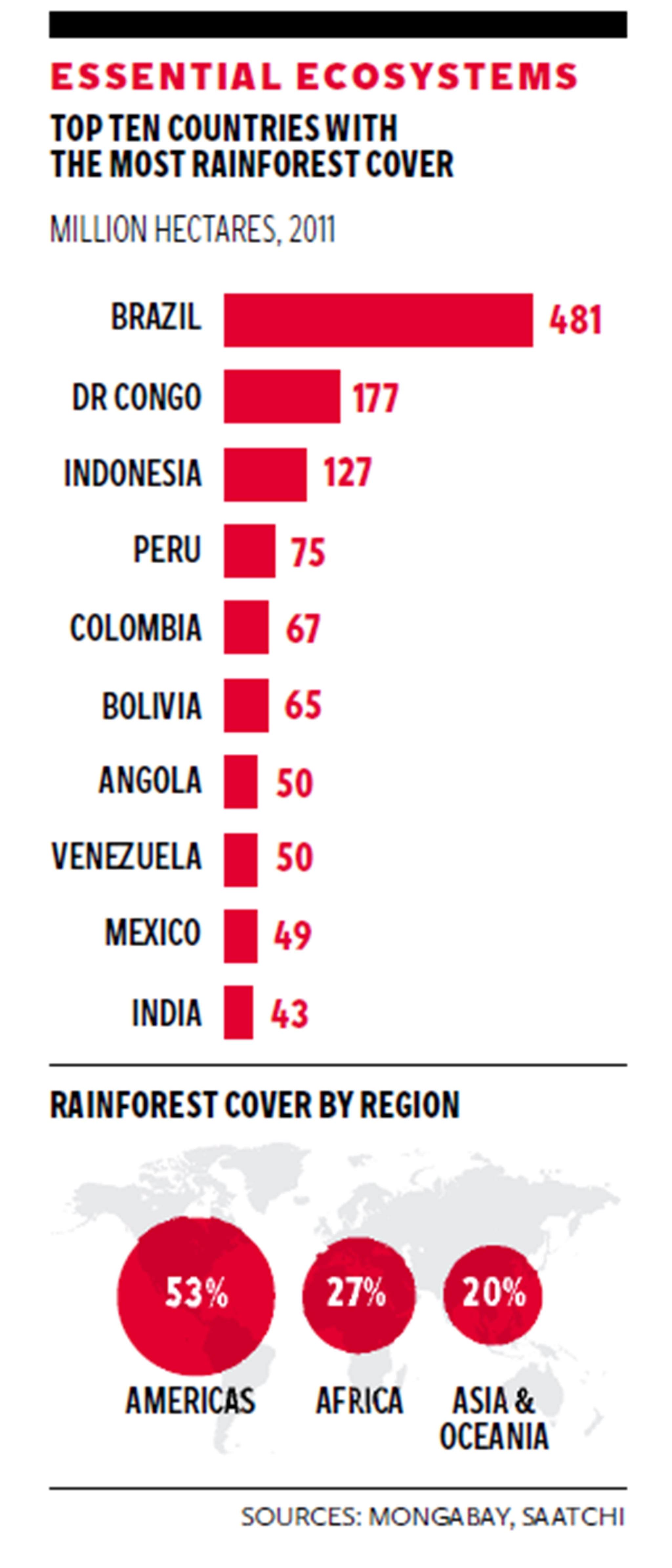Rainforests ‘out of danger’ thanks to global giants
Leading conservationist Rhett Butler sounds note of optimism

Your support helps us to tell the story
From reproductive rights to climate change to Big Tech, The Independent is on the ground when the story is developing. Whether it's investigating the financials of Elon Musk's pro-Trump PAC or producing our latest documentary, 'The A Word', which shines a light on the American women fighting for reproductive rights, we know how important it is to parse out the facts from the messaging.
At such a critical moment in US history, we need reporters on the ground. Your donation allows us to keep sending journalists to speak to both sides of the story.
The Independent is trusted by Americans across the entire political spectrum. And unlike many other quality news outlets, we choose not to lock Americans out of our reporting and analysis with paywalls. We believe quality journalism should be available to everyone, paid for by those who can afford it.
Your support makes all the difference.The battle to save the rainforest is finally being won, according to a leading conservationist previously known for his pessimism.
The dramatically improved prospects for the rainforests have been triggered by a switch in land use from slash-and-burn subsistence farming to the production of commodities such as soy, palm oil, cattle and wood pulp, according to Rhett Butler, founder of the influential Mongabay.com website that tracks the world’s tropical forests.
These commodities industries are dominated by a handful of global giants, which are more responsive to pressure from environmentally conscious Western consumers than the local farmers who were formerly responsible for much of the deforestation.
The rainforests’ cause is further helped by new technological developments such as drones and satellites which make it easier to spot illegal loggers, Mr Butler said.

Writing on Yale’s Environment website, Mr Butler said: “For a decade-and-a-half, I have devoted tens of thousands of hours to the cause of protecting forests. I’ve witnessed incredible destruction, and there has been reason for despair. But lately – for the first time, really – I’ve started seeing cause for optimism about the future of forests.”
He added: “I’m no Pollyanna. My new view isn’t blind optimism – it’s informed optimism, because there are emerging trends that should give us hope that forests can be preserved.”
Sally Uren, chief executive of the sustainable development charity Forum for the Future, told The Indpendent that she too was starting to feel more positive about the rainforests’ outlook.
“The issue has definitely risen up the agenda of big corporations in the past two years. They increasingly realise that there is a strong rationale for preserving these landscapes because they are very reliant on commodities from those regions,” she said.
“There is a much greater sense of shared responsibility and I am feeling reassured by the seriousness with which many big multinationals are taking this responsibility,” she added, pointing to the consumer goods giant Unilever and the Sky broadcasting company as examples of businesses getting tough on deforestation.
Mr Butler pointed to several positive developments in the last few weeks, with dozens of the world’s largest buyers and sellers of soy, palm oil, cattle and wood pulp establishing policies committing them to “excluding” deforestation from their supply chains.
The biggest coup, he says, came in September when Cargill, which sells £85bn-worth of commodities around the world a year, committed to “zero deforestation” across all its supply chains.
In September, politicians from around the world pledged in New York to halve the rate of destruction of rainforests by 2020 and to halt it altogether by 2030.
The plight of the rainforests has come a long way since Sting brought the situation to the world’s attention in the early 1990s.
At that point about 11.3 million hectares of rainforest was lost each year, falling slightly to about 9.3 million hectares a year by 2012, still stubbornly high.
The rate of loss looks set to tumble in the coming years, Mr Butler says.
Join our commenting forum
Join thought-provoking conversations, follow other Independent readers and see their replies
Comments